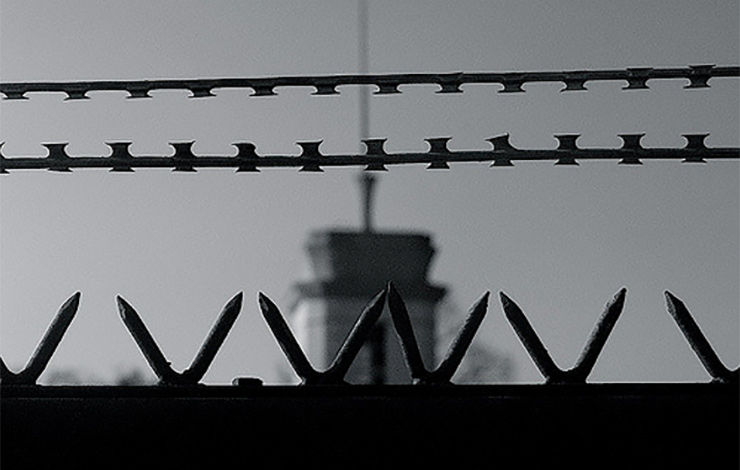The Kyrgyz Republic’s (KR) ratification of the Optional Protocol to the UN Convention against Torture (OPCAT) in 2008 was an encouraging event. However, the implementation is still of concern.
Challenge

The Kyrgyz Republic’s (KR) ratification of the Optional Protocol to the UN Convention against Torture (OPCAT) in 2008 was an encouraging event. However, the implementation is still of concern in the following areas:
- National practice, which comprises of:
- Individual capacities and attitudes.
National practice comprises of: numerous allegations of the routine use of torture in order to extract confessions, including from women and minors; arbitrary detentions; restrictions in the access to legal services and relatives even during the day; cases of abuse, ill-treatment and deaths while in custody; poor conditions in the prisons; lack of adequate medical care; excessive use of force, torture and ill-treatment by the military, security and police forces; absence/insufficient public monitoring of detention facilities; documented instances of the violations; existing practices of the visits organized by Human Rights NGO are irregular and sporadic, very often those are subject to arbitrary decisions of the authorities on the spot; NGO members are easily exposed to all kinds of harassment and intimidation. The UN Special Rapporteur on torture, Juan E. Méndez, urged the KR Government to prevent abuses, torture and ill-treatment, and to put an end to the prevalent impunity in such cases by promoting accountability and ensuring that alleged perpetrators are held responsible according to international law. In one of his recommendations, he stated that Kyrgyzstan needs to revamp the framework of procedural safeguards against torture, among other things by creating a meaningful and transparent system of access to assistance of counsel from the moment of arrest, and to ensure that it is implemented in good faith.
Program Summary
Outputs:
- State agencies and civil society organizations of the Kyrgyz Republic are capacitated to effectively report and prevent cases of torture;
- Comprehensive assistance provided in the start-up of the NPM through provision of technical assistance and expertise.
The first output will foster partnerships between and among all target groups as the NPM, civil society organizations involved in public monitoring and state authorities in order to effectively prevent cases of torture. Capacity building and awareness raising activities for the law enforcement bodies and civil society representatives will be carried out under this output. The output will result in more effective monitoring and reporting of torture and ill-treatment and reducing prevalence of torture and ill-treatment and improving conditions for proving incidence of torture. The second output will result that National Mechanism of Torture put into place and functioning. Since the NPM law has been recently adopted and the National Center on Torture prevention will be established soon, it will be important to develop the mechanisms, provision and regulations of this Center.
Activities:
Output 1:
- 1.1. Conduct trainings for the Ombudsman Institute staff members in the regions and civil society representatives on monitoring and reporting techniques and NPM standards;
- 1.2. Conduct trainings on report writing techniques for the staff of the Ombudsman Institute and civil society representatives;
- 1.3. Conduct series of trainings on the levels of Ministries and in the region with top to mid-level managers and administrations of the places of deprivation of liberty on the OPCAT concept;
- 1.4. Develop and publish booklets on OPCAT in Kyrgyz and Russian languages, posters on NPM and how to communicate the cases of torture to the National Center.
Output 2:
- 2.1 Assist in developing mechanisms, procedures and business processes for the NPM in accordance with the requirements of the OPCAT;
- 2.2 Institutionalize regular preventative visits to places of deprivation of liberty in accordance with the OPCAT through legal adoption of appropriate regulations;
- 2.3 Develop questionnaire and handbook for NPM members on taking interviews during the monitoring of the place of deprivation;
- 2.4 Developing standards for NPM members on the quality performance of their functions;
- 2.5 Conduct a workshop on the issues of mission / mandate of the NPM, communication strategy, roles and authorities of the NPM members.
Impact
Final beneficiaries are the people of Kyrgyzstan, especially vulnerable groups of the population, civil society organizations, and human right defenders. Beneficiaries are also people who have been subject to torture and/or who are victims of torture at present, who are kept in all places of detention, police stations, prisons (military and civilian), detention centers (e.g. pre-trial detention centers, immigration detention centers, juvenile justice establishments, etc.), mental health and social care institutions and any other places where people are or may be deprived of their liberty. These people suffering from torture and other inhuman treatment and are in a great need in improvement of conditions in prisons and detention facilities and the establishment of a complaint mechanism for victims of torture.
Anticipated Issues
Lack of political will and readiness of local and central authorities, including law enforcement, to work on the establishment of NPM. Meetings with high level officials, Deputies, leaders of political fractions in the Parliament, Ombudsman and other stakeholders will be held in order to overcome these challenges. Throughout the project duration capacity development, dialogue and joint awareness raising activities are envisaged. Implementer, in cooperation with HRDs and Ombudsman office, will work to increase awareness of public officials.
Partners
Partners include:
- The National Center on Torture prevention
- Ombudsman Institute
- Civil Society representatives
- The Deputies of the Parliament
- Law enforcement bodies
- Regional UNOHCHR Office in the Kyrgyz Republic

